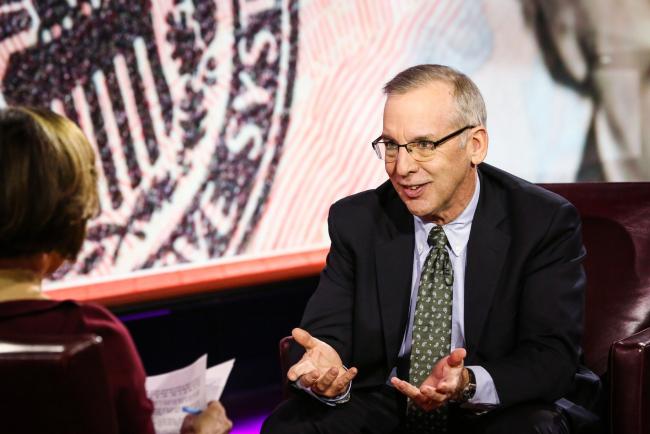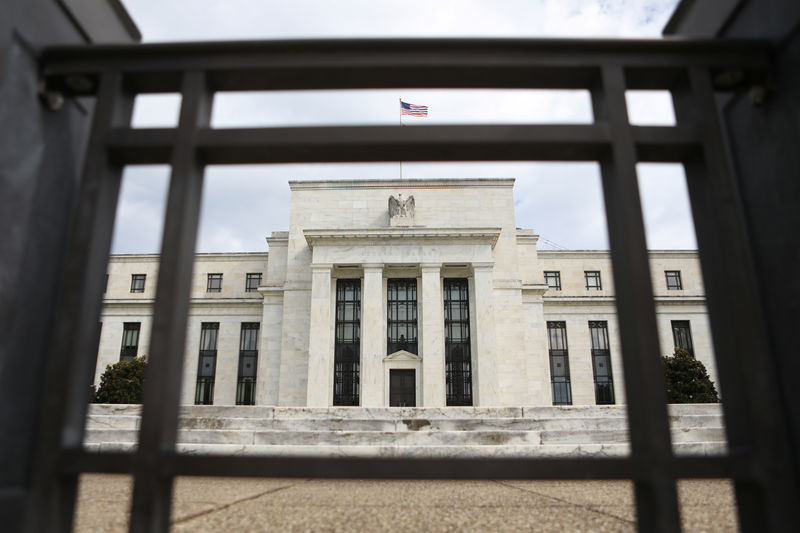(Bloomberg) -- Federal Reserve action to keep credit flowing rewards risky behavior and the remedy may be tougher regulation in the future, said former New York Federal Reserve Bank President William Dudley.
“People who have high-yield debt that’s outstanding, a lot of times that’s happened by choice,” he told Bloomberg Television Wednesday in an interview with Tom Keene, Lisa Abramowicz and Jonathan Ferro (NYSE:FOE). “So for the Federal Reserve to intervene and support those asset prices, is basically creating a little bit of moral hazard in the sense you’re encouraging people to take on more debt.”
The Fed has unveiled a range of emergency lending programs since March to keep credit flowing during the coronavirus pandemic. Among them is a facility for the corporate debt market that includes some purchases of exchange-traded funds invested in high-yield bonds -- though Fed buying has so far been relatively light. In addition, the central bank has bought trillions of dollars of Treasury and mortgage-backed securities to ensure market liquidity in a cornerstone of the global financial system.
‘Bailed Out’
“We had a number of players in these last few months that have essentially been bailed out by the Fed: Hedge funds that were invested in cash Treasuries, and short Treasury futures,” said Dudley, noting Fed Treasury purchases helped “those entities unwind what turned out to be a bad trade.”
“If people become very leveraged and they’re big enough to be systemic, then I think there needs to be some regulation to reel that in,” he said. Dudley stepped down from the New York Fed in 2018
His remarks come with the Fed in blackout ahead of its meeting next Tuesday and Wednesday. Officials are expected to hold interest rates near zero and re-commit to using their full range of tools to support the U.S. economy as it slowly reopens from the virus lockdown.
More than 40 million U.S. workers have filed for unemployment benefits in the past 2-1/2 months as businesses shuttered and Americans stayed home to limit the contagion. Payroll data due Friday is expected to show the unemployment rate surged to 19.5% in May, the highest level since the Great Depression.
The Fed has also sought to ease strain by loosening the regulatory reins on banks and encouraging them to show forbearance with borrowers struggling to keep up debt payments. Big banks have been more tightly regulated since the 2008 financial crisis. A range of other intermediaries -- often called shadow banks -- still operate under a light regulatory touch. Dudley said they may require stricter oversight and he had a couple of suggestions.
Liquidity Insurance
The Fed could instruct banks to limit the leverage they offer private equity and hedge-fund clients, or require the purchase of “liquidity insurance from the Fed during peacetime so it’s available during wartime,” he said.
As the scale of the pandemic and likely economic devastation became apparent, investors dashed for the safety of cash, causing a severe shortage of liquidity and prompting the Fed to step in.
“What the Fed really wants to avoid in these kinds of episodes is where people have to dump lots of assets into the market and there’s no buyers and that then distorts markets significantly,” Dudley said.
In addition, he said the Securities Exchange Commission could change mutual fund rules so that funds invested in very illiquid assets stop offering overnight liquidity. That would help prevent the risk of a “fire sale” of underlying assets to meet cash demands when investors all ask for their money back at the same time.
“There are a number of things that are worth exploring,” he said. “It’s one thing if you have a financial crisis every 50, 100 years. If you start to have a financial crisis every 10 years, then the Fed’s actions are going to encourage people to take more risk in the future.”
©2020 Bloomberg L.P.

